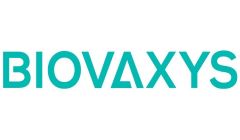BVX-0922 to target colorectal cancer under investigator-sponsored IND

BioVaxys announced the expansion of its cancer vaccine platform with BVX-0922, its autologous haptenized tumour vaccine for colorectal cancer. BioVaxys plans to advance an Investigator-Sponsored Clinical Trial Application (CTA), in the EU with the European Medicines Agency (EMEA) this year for BVX-0922. An Investigator Sponsored CTA is submitted to regulatory authorities by a clinical investigator who both initiates and conducts an initial clinical study of a new drug or procedure, and under whose immediate direction the investigational drug is administered.
CRC is the third most common malignancy and the second most deadly cancer worldwide, with an estimated 1.9 million new CRC cases diagnosed and 0.9 million deaths globally in 2020. The incidence of CRC is higher in highly developed countries, with global new CRC cases predicted to reach 3.2 million in 2040. When diagnosed early, the five-year relative survival rate for stage I and stage II colon cancer is 90%; however, CRC patients often experience no signs or symptoms associated with the disease. The 5-year survival rate for patients diagnosed at Stage IV is only 14% (Journal of Translational Oncology, Global Colorectal Cancer Burden in 2020 And Projections to 2040, Vol 14, Issue 10, October 2021).
A major benefit of the company's autologous haptenized tumour vaccine technology platform is the rapid scalability into a range of tumour types, especially those where the standard of care for these cancer patients typically involves surgical excision of tumour tissue. Access to these tumour cells is necessary for BioVaxys to manufacture autologous haptenized tumour cell vaccines, such as BVX-0918 for late-stage ovarian cancer or BVX-0922 for CRC.
The BioVaxys vaccine platform is based on the established immunological concept that modifying surface proteins---whether they are viral or tumour ---with haptens makes them more visible to the immune system. This process of haptenization "teaches" a patient's immune system to recognize and make target proteins more "visible" as foreign, thereby stimulating a T-cell mediated immune response. BioVaxys' cancer vaccines are created by extracting a patient's own (i.e., autologous) cancer cells, chemically linking with a hapten, and re-injecting them into the patient to induce an immune response to proteins that are otherwise not immunogenic.
BioVaxys has a significant advantage over many other companies looking at cancer therapies in that it already has extensive promising clinical data for its cancer vaccines.
First-generation single-hapten vaccines invented by BioVaxys Co-Founder and Chief Medical Officer David Berd, MD, achieved positive immunological and clinical results in his previous FDA-approved Phase I and Phase II human trials in over 600 patients with different tumor types, as well as having no observed toxicity in years of clinical study.

Subscribe To Our Newsletter & Stay Updated